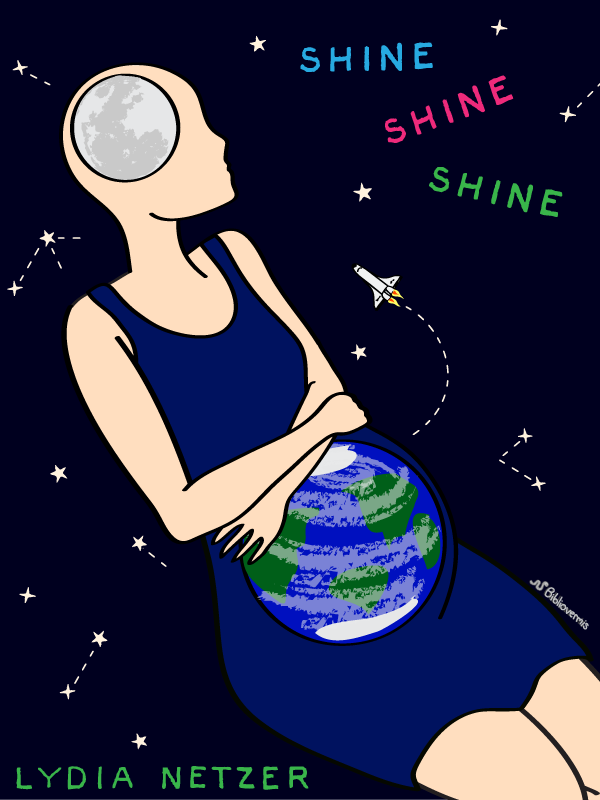


The way people fall inexorably, completely, terribly in love is a much more mysterious question than the secrets of the galaxy. Having said all that, the love story of the novel is still its heart and is still the most interesting piece for me. I got very interested in how programming a robot was like raising a child, how math-brained people are an evolutionary step toward an era of space travel, and how human interactions can be understood and explained with math equations and code snippets. programmer, and then an astronaut, and everything else stemmed from that. He started out as a day trader, plugged in to his computer all the time, and no one went to the moon at all, or even thought about it. I did set out to write a love story, and all the sci-fi elements stemmed from my male main character Maxon's choice of job. What percentage titanium does a novel have to be in order to qualify? I don't think Shine Shine Shine counts as real sci-fi, although it does have robots, math, a rocket to the moon, and NASA.

Lydia Netzer: I definitely did not set out to write science fiction. Photo: © 2005 IMAX Corporation and Playtone.) Goodreads: Goodreads members are shelving your book as both "romance" and "science fiction." What did you set out to write, and how different is the final version from where you started? Magnificent desolation." (Still from the film. Everything about it inspired me, including that magical quote from Buzz Aldrin on stepping out onto the moon: "Beautiful, beautiful. I watched this movie, Magnificent Desolation: Walking on the Moon 3D, with my family at the Kennedy Space Center in Florida.


 0 kommentar(er)
0 kommentar(er)
